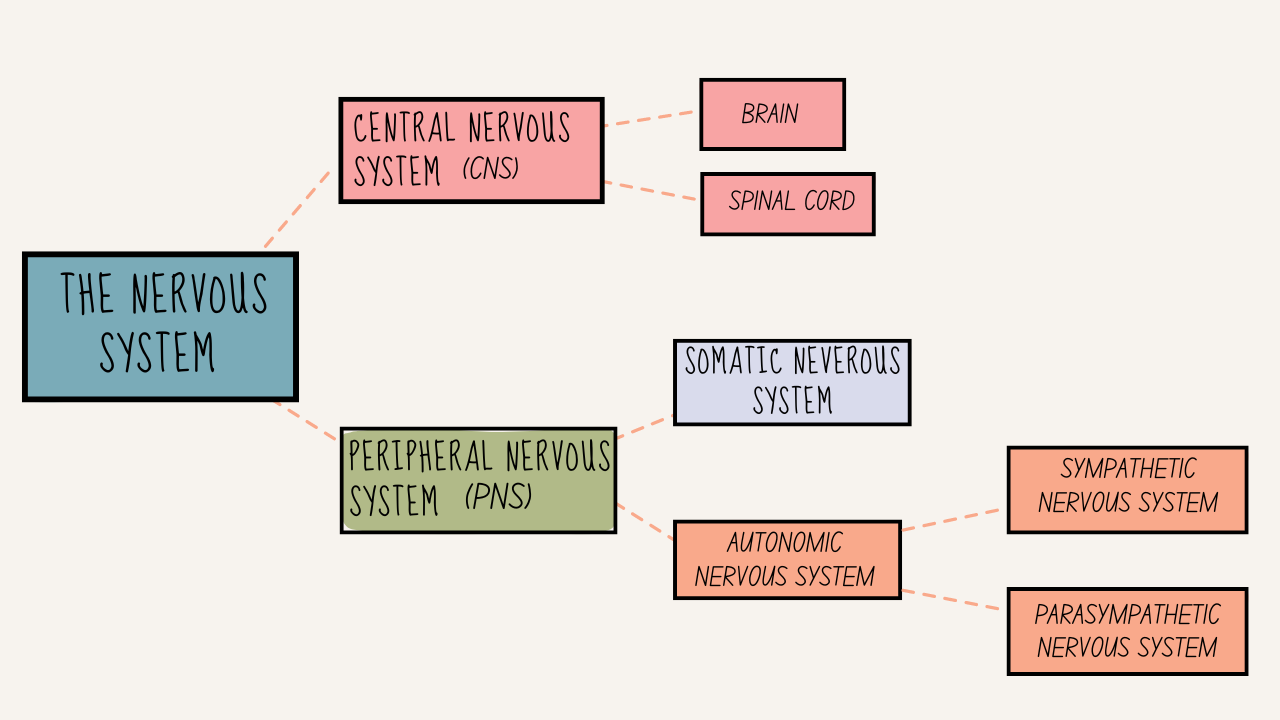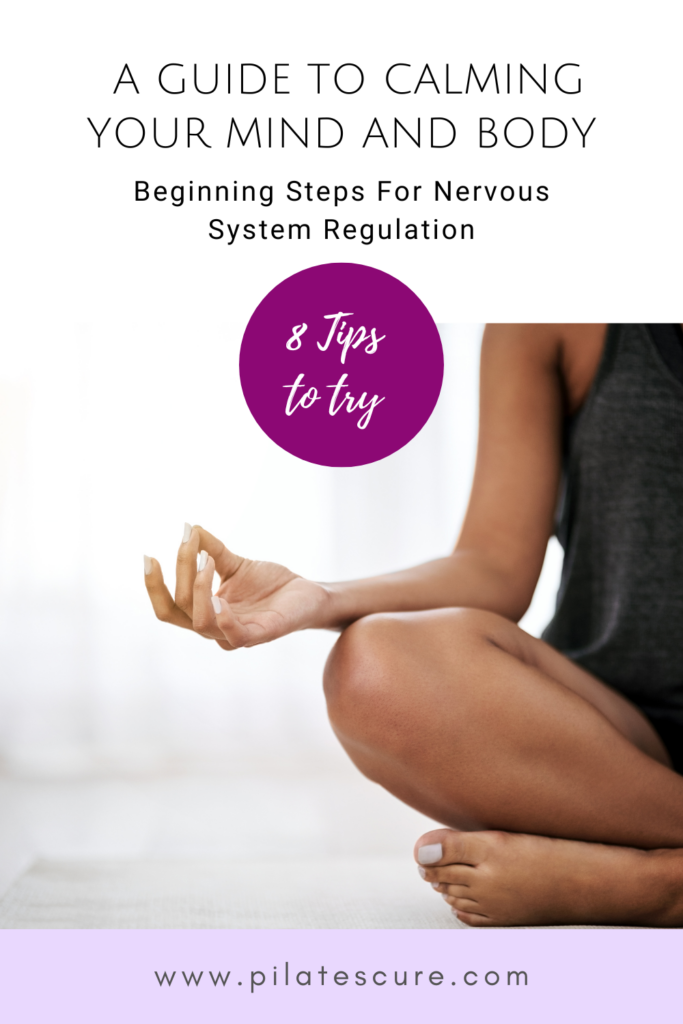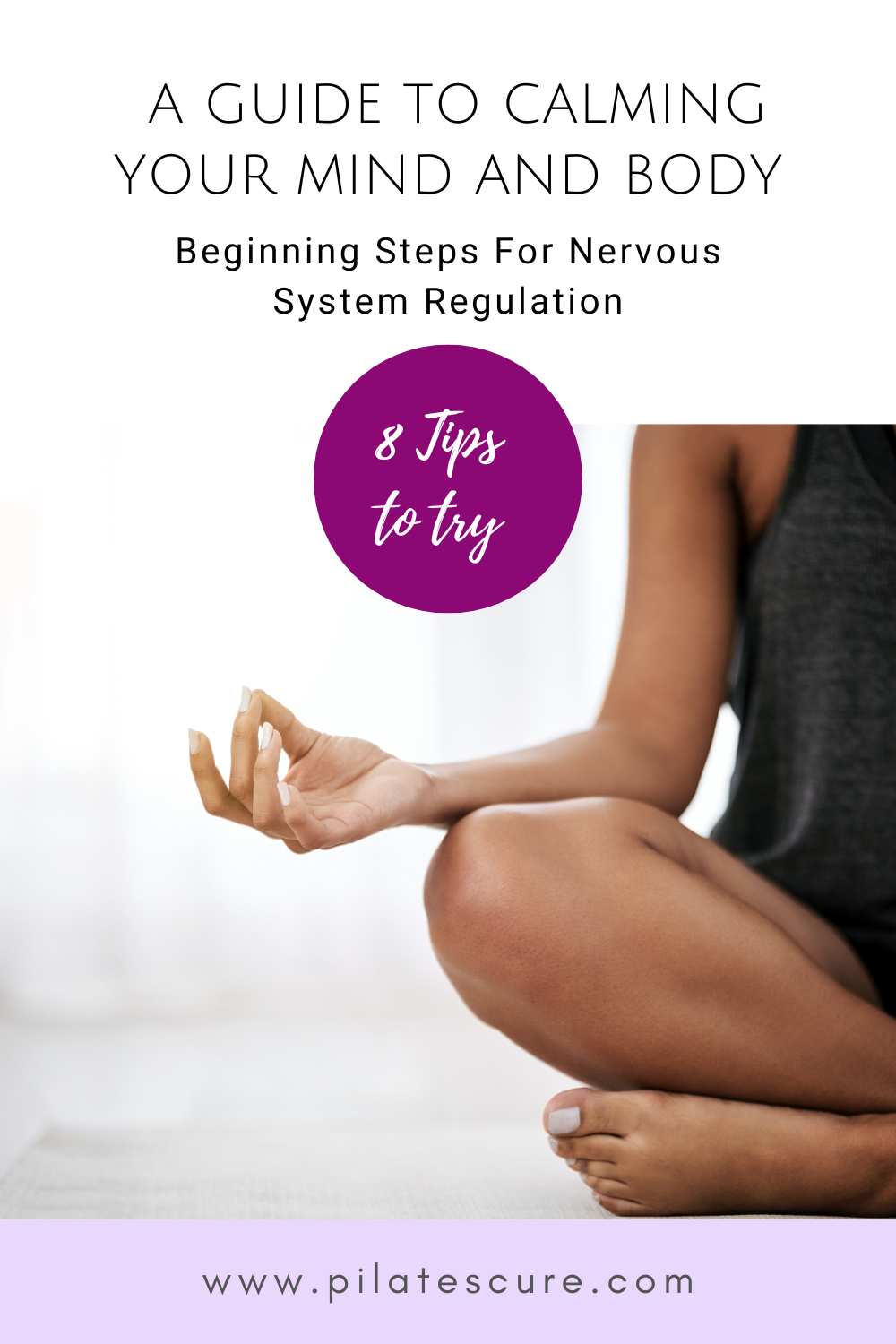Did you grow up hearing things like, “Idle hands are the devil’s workshop”?
Being overworked, overstimulated, and undersupported is worn by many as a badge of honor. Our culture seems to idealize the hustle, but your productivity is not directly related to your worth.
I’ll even take it a step further and say, you will be better off and more productive if you learn how to self-regulate and drop the hustle mentality.

Nobody may have ever taught you how or why your body needs to slow down both mentally and physically from time to time. Let alone how to actually do that.
In 2019 I pushed myself into complete dysregulation of my nervous system. Mine gave me all the signals that I ignored until it came in with the big guns that I couldn’t ignore. I spent years building back to where I needed to be.
Learn from my mistakes!
Let’s get a bit sciency for a second.
Your nervous system plays a role in everything you do, think and feel. It even helps you with things you do automatically without thinking about. Basically, it keeps you safe, alive, and mobile.
Your nervous system is like command central for your body. It’s a complex network that transmits signals between different parts of your body.
The three main parts of the nervous system are:
- Your Brain
- Your Spinal Cord
- Your Nerves
I like to picture something more like a scene from the Disney movie Inside Out.
Hang with me, this is important but I’ll keep it short.
Your nervous system has two main parts, the central nervous system (CNS) and the peripheral nervous system (PNS). They each have vital roles in the body.
Your CNS is made up of your spinal cord and brain.
Your PNS is how the rest of your body is connected to your brain and spinal cord. It is a bit more complex and gets broken down even more into your somatic and autonomic nervous systems.
Your autonomic nervous system gets broken down into your sympathetic and parasympathetic nervous systems.
But all you need to really know is these systems are in control of everything you do both consciously and unconsciously. If these systems are not feeling supported and not working properly together as a complete system, you will start to feel the side effects.
How it shows up in your body is as unique as you are.
Common forms include things like:
- Anxiety
- Depression
- IBS Symptoms
- Headaches
- Brain Fog
- Irritability
- Weight Gain
- Loss of Sleep
- Hormone Disruption
- Low Immune Response
- Poor Memory
- and so much more

now you know a bit about your nervous system and its structure, but how do you take care of it?
Effective stress management targets awareness, relaxation, and resilience.
If you are a visual learner like me, this analogy might help you:
I am a runner.
Part of training for a race is monitoring your heart rate recovery time. You check how quickly your heart rate spikes, maintain it for a set duration, and then observe how quickly it drops when you reduce effort.
A faster recovery time indicates better heart health and greater resilience to stress. This process requires awareness and consistent practice, allowing you to physically track your progress.
Practicing stress management is similar. You need the same components of awareness and designated practice to track and improve your results, building resilience over time.
In both scenarios, enhanced resilience is the goal. A well-regulated and resilient nervous system helps you react better under stress and adverse conditions. Just like you train your heart rate recovery before a race, you need to practice managing your nervous system in calm situations. This preparation allows you to recover more quickly when faced with stress.
When you’ve effectively practiced managing your nervous system in non-stressful situations, you’ll be better prepared for stressful, adverse situations and will be able to recover more quickly.
8 Of My Favorite Ways To Regulate My Nervous System On A Daily Basis:
1. Meditation/Moving Meditation
3. Progressive Muscle Relaxation (PMR)
4. Grounding
5. Pilates
6. Connecting With Nature
7. Coloring/Making Art
8. Journaling/Gratitude Journal
Some of the above eight suggestions may not resonate with you. That’s ok. Pick the one(s) that do and that you can easily fit into your day and start monitoring your progress.
Productivity is not related to your value.
What you do in a day is less important than how you live and feel in your body.
It is not selfish or lazy to take the time you need to work on your entire health and wellness. The parts of your body you can’t see are just as important, as the parts of your body you can see.
So, just like you aim to get a set number of active minutes each week, you should also aim to get in some dedicated nervous system regulation.
By practicing techniques such as meditation, deep breathing, and grounding, you can enhance your nervous system’s ability to recover from stress.
Embrace the practices that resonate with you and start your journey toward a healthier, more resilient you.
Ready to start your journey towards a healthier, more resilient you?
Pick one of the eight techniques that resonate with you and integrate it into your daily routine starting today.
Track your progress and watch as your ability to handle stress improves.
Share your experiences and tips in the comments below, and let’s support each other in achieving better health and well-being!



